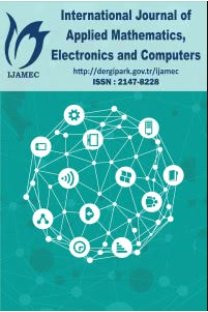Using K-Means and K-Medoids Methods for Multivariate Mapping
Multivariate mapping is the visual exploration of multiple attributes using a map or data reduction technique. The simultaneous display of sometimes multiple features and their respective multivariate attributes allows for estimation of the degree or spatial pattern of cross-correlation between attributes. Multivariate mapping integrates computational, visual, and cartographic methods to develop a visual approach for exploring and understanding spatiotemporal and multivariate patterns. More than one attribute can be visually explored and symbolized using numerous statistical classification systems or data reduction techniques. In this sense, clustering analysis methods can be used for multivariate mapping. k-means and k-medoids methods which are non-hierarchical clustering analysis methods were analyzed in this study. The aim of this study is to determine the success of the spatial analysis of the multivariate maps produced by these methods. For this aim, classes and multivariate maps created with these methods from traffic accident data of two different years in Turkey were presented. In addition usability of such maps in risk management and planning was discussed.
Keywords:
Multivariate mapping, Data mining Cluster analysis, Visualization,
___
- [1] Buckley A., Multivariate mapping, In Encyclopedia of Geographic Information Science edited by Kemp K., 2008, 300-303.
- [2] Slocum T.A., McMaster R.B., Kessler F.C. and Howard H.H., Thematic Cartography and Geovisualization, Pearson Education Inc. Third Edition, USA, 2009.
- [3] Brewer C.A., Color Use Guidelines for Mapping and Visualization, In Visualization in Modern Cartography edited by MacEachren A.M. and Taylor D.R.F., 1994, 123-147.
- [4] Metternicht G. and Stott J., Trivariate Spectral Encoding: A Prototype System for Automated Selection of Colours for Soil Maps Based on Soil Textural Composition, in Proceedings of the 21st International Cartographic Conference, Durban, CD, 2003.
- [5] Byron J. R., Spectral Encoding of Soil Texture: A New Visualization Method, in GIS/LIS Proceedings, Phoenix, Airz., 1994, 125-132.
- [6] Interrante V., Harnessing Natural Textures for Multivariate Visualization, IEEE Computer Graphics and Applications, 2000, 20(6), 6-11.
- [7] Jenks G. F., Pointillism as a Cartographic Technique, The Professional Geographer, 1953, 5, 4-6.
- [8] Cox D.J., The Art of Scientific Visualization, Academic Computing, 1990, 4, 20-22, 32-34, 36-38.
- [9] Ellson R., Visualization at Work, Academic Computing, 1990, 4(6), 26-28,54-56.
- [10] Dorling D., The visualization of local urban change across Britain, Environment and Planning B: Planning and Design, 1995, 22, 269 -290.
- [11] Grinstein G., Sieg J.C.J., Smith S. and Williams M.G., Visualization for Knowledge Discovery, International Journal of Intelligent Systems, 1992, 7, 637-648.
- [12] Healey C.G., and Enns J.T., Large Datasets at A Glance: Combining Textures And Colors In Scientific Visualization, IEEE Transactions on Visualization and Computer Graphics, 1999, 5(2), 145-167.
- [13] Miller J.R., Attribute Blocks: Visualizing Multiple Continuously Defined Attributes, IEEE Computer Graphics and Applications, 2007, 27(3), 57-69.
- [14] Zhang X. and Pazner M., The Icon Imagemap Technique for Multivariate Geospatial Data Visualization: Approach and Software System, Cartography and Geographic Information Science, 2004, 31(1), 29-41.
- [15] Nelson E. S. and Gilmartin P. P., An evaluation of multivariate, quantitative point symbols for maps, In Cartographic Design: Theoretical and Practical Perspectives edited by C. H. Wood and C. P. Keller, 1996, 191-203.
- [16] DiBiase D., Designing Animated Maps for A Multimedia Encyclopedia, Cartographic Perspectives, 1994, 19, 3-7.
- [17] Nelson E.S., Designing Effective Bivariate Symbols: The Influence of Perceptual Grouping Processes, Cartography and Geographic Information Science, 2000, 27(4), 261-78.
- [18] Murray A. T. and Grubesic T. H., Exploring spatial patterns of crime using non-hierarchical cluster analysis, In Crime modeling and mapping using geospatial technologies, 2013, 105-124, Springer Netherlands.
- [19] Grubesic T. H., Wei R. and Murray A.T., Spatial Clustering Overview and Comparison: Accuracy, Sensitivity, and Computational Expense, Annals of the Association of American Geographers, 2014, 104(6), 1134-1156.
- [20] Weng J., Qiao W., Qu X. and Yan X. Cluster-Based Lognormal Distribution Model For Accident Duration, Transportmetrica A: Transport Science, 2015,11(4), 345-363.
- [21] Guo F. and Fang Y., Individual Driver Risk Analysis Using Naturalistic Driving Data, 3rd International Conference on Road Safety and Simulation, September 14-16, 2011, Indianapolis, USA.
- [22] Feng S., Li Z., Ci Y. and Zhang G., Risk Factors Affecting Fatal Bus Accident Severity: Their Impact on different Types of Bus Drivers, Accident Analysis and Prevention, 2016, 86, 29-39.
- [23] Martinussen L. M., Møller M., Prato C.G., Assessing the Relationship Between the Driver Behavior Questionnaire and the Driver Skill Inventory: Revealing Sub-groups of drivers, Transportation Research Part F, 2014, 26, 82-91.
- [24] Dinçer E.Ş., Veri Madenciliğinde K-means Algoritması ve Tıp Alanında Uygulanması, M. Eng. Thesis, Kocaeli University Institute of Science, Kocaeli, 2006 (in Turkish).
- [25] Han J., Lee J.G. and Kamber M., An Overview of Clustering Methods in Geographic Data Analysis, In Geographic Data Mining and Knowledge Discovery edited by Miller H.J. and Han H., Taylor & Francis Group, LLC, 2009.
- [26] Han J. and Kamber M., Data Mining: Concepts and Techniques, San Francisco, 2006
- [27] Silahtaroğlu, G.. Veri Madenciliği (Kavram ve Algoritmaları). Papatya Publishing, 2013, İstanbul, (in Turkish).
- [28] Akın, Y.K. Veri Madenciliğinde Kümeleme Algoritmaları ve Kümeleme Analizi. PhD diss., Marmara University Institute of Social Science, 2008,İSTANBUL, (in Turkish).
- ISSN: 2147-8228
- Yayın Aralığı: Yılda 4 Sayı
- Başlangıç: 2013
- Yayıncı: Selçuk Üniversitesi
Sayıdaki Diğer Makaleler
Gökçen Çetinel, Llukman Çerkezi, Barış Yazar, Doğukan Eroğlu
Gokhan ALTAN, Yakup KUTLU, Novruz ALLAHVERDİ
Orhan YAMAN, Mehmet BAYGİN, Mehmet KARAKOSE
